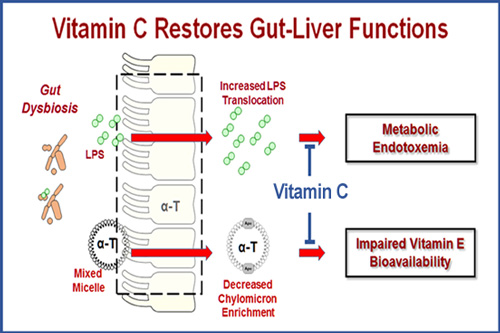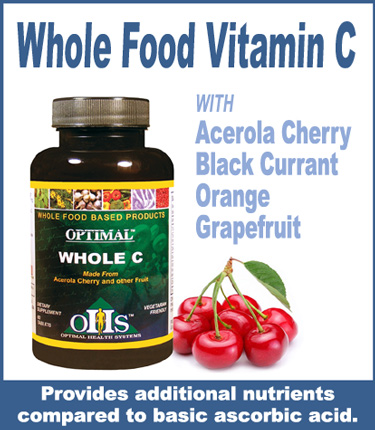A new study has revealed that low vitamin C levels impair the “gut to liver” transfer of vitamin E. This biological function is crucial when the body is experiencing times of inflammation.
The research was conducted at Oregon State University and published in the journal Redox Biology.
It has long been known that the two antioxidant vitamins C and E are an essential part of the body’s defense against oxidative stress.
The new study builds on this by revealing how vitamin C is a catalyst for the vitamin E, creating a crucial synergy between the two.

“Vitamin C actually protects vitamin E, so when you have lipid peroxidation, vitamin E is used up and vitamin C can regenerate it,” said Maret Traber, review team member and professor at the Oregon State University (OSU) College of Public Health and Human Sciences.
“If you don’t have the vitamin C, the vitamin gets lost and then you lose both of those antioxidants and end up in this vicious cycle of depleting your antioxidant protection.”
The original goal of the nutrition scientists at OSU was to provide links between antioxidant nutrients and people suffering from metabolic syndrome.
Addressing gut inflammation with antioxidant vitamins.
Metabolic syndrome is a medical condition in which the patient suffers from a mix of several health risk factors. Any combination of three of the risk factors qualifies. The risk factors include: abdominal obesity, high blood pressure, low HDL cholesterol, raised serum triglycerides and raised fasting blood glucose.
Around 35% of the American adult population has metabolic syndrome, with a higher prevalence in older age groups. Since this high percentage qualifies as a major public health concern, much research has focused on the underlying physiological mechanisms causing it.
With this in mind the OSU scientists reviewed the current research on the relationship between poor gut health and levels of vitamins C and E. The researchers published their findings in February, 2019.
The researchers concluded that low vitamin C levels in metabolic syndrome patients are probably driven by gut inflammation and dysfunction caused by excess fat consumption. This leads to a vicious cycle of poor absorption and increased body requirements of critical vitamin C.
In short, while everyone needs regular vitamin C to optimize gut health and limit inflammation, for those suffering any of the indicators of metabolic syndrome vitamin C intake needs to be drastically increased.
When choosing a vitamin C supplement, avoid “ascorbic acid” only supplements and choose a whole food supplement such as Optimal Whole C from Optimal Health Systems.
Vitamin C made from whole foods includes constituents and nutrients not found in basic ascorbic acid.

